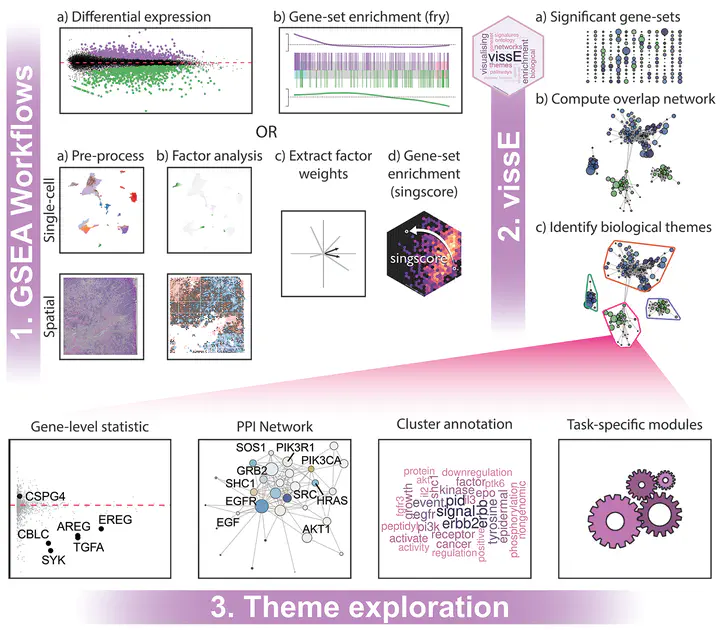vissE: A versatile tool to identify and visualise higher-order molecular phenotypes from functional enrichment analysis
 Schematic of the vissE workflow
Schematic of the vissE workflowAbstract
Functional analysis of high throughput experiments using pathway analysis is now ubiquitous. Though powerful, these methods often produce thousands of redundant results owing to knowledgebase redundancies upstream. This scale of results hinders extensive exploration by biologists and often leads to investigator biases due to previous knowledge and expectations. To address this issue, we present vissE, a flexible network-based analysis method that summarises redundancies into biological themes and provides various analytical modules to characterise and visualise them with respect to the underlying data, thus providing a comprehensive view of the biological system. We demonstrate vissE’s versatility by applying it to three different technologies: bulk, single-cell and spatial transcriptomics. Applying vissE to a factor analysis of a breast cancer spatial transcriptomic data, we identified stromal phenotypes that support tumour dissemination. Its adaptability allows vissE to enhance all existing gene-set enrichment and pathway analysis workflows, removing investigator bias from molecular discovery.